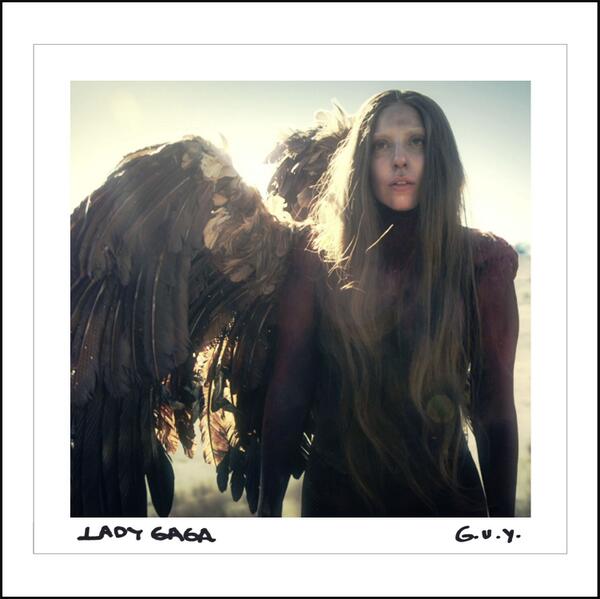It’s no real secret that the fashion and music industries
are, now more than over, heavily dependent on one other. Take the recent slew
of bi-annual Fashion Weeks and look at their headlines; Katy Perry pissed
everyone off by being drastically late to Jeremy Scott’s Moschino debut,
Rihanna divided her time between a trolley dash in the aisles of the Chanel
supermarket and countless Instagram snaps with Olivier Rousteing and, finally,
Versace’s couture collection gained more column inches from Lady Gaga’s
appearance than any of the looks shown on the runway. The love between Gaga and
Donatella is clearly mutual; ever since Donatella loaned out archive pieces
from Gianni’s vaults to accompany Lady Gaga’s ‘”Edge of Glory” music video, the
friendship has resulted in the popstar fronting Versace’s latest campaign as
well as devoting a song on her ‘ARTPOP’ album to Donatella’s unattainable
wealth, sass and general brilliance. It seems natural that Gaga’s
recently-released G.U.Y video seems, via the use of a floor-length platinum
wig, a visual extension of the advertisement campaign and more like a fashion
film than any traditional music video. The Lady is known for her outfits; here
are five of the best.
Showing posts with label ARTPOP. Show all posts
Showing posts with label ARTPOP. Show all posts
Tuesday, 25 March 2014
Saturday, 26 October 2013
POP ART? OR ARTPOP?
‘POP ART’.
The term has been used so often that people are no longer quite sure what it
was ever originally supposed to be – is it
a movement, is it a concept, is it a hybrid or is it just a neologism? I
myself used to be sceptical of the term, my knowledge of the movement extending
only to the Campbells soup cans of Andy Warhol and the cartoon prints of Roy
Lichtenstein, an American artist whose fabulous exhibition at the Centre
Georges Pompidou truly ignited my interest earlier today.
 |
| Lichtenstein Poster |
The
exhibition was a walk-through of Lichtenstein’s fascinating career – his flirtations
with cubism, his years of ‘image duplication’, his use of abstract materials
and even his comic-strip commentaries on wartime America. However, despite all
of this, the beginning of his career was the era which caught my eye the most;
the time period in which he was intrigued by the brutally direct slogans and
ubiquitous imagery of the advertising industry. Everyday items such as coffee
cups and hot dogs became staples of American culture through advertising,
therefore becoming (due to America’s worldwide dominance) representations of ‘pop
culture’. Lichtenstein created sculptures and paintings of these everyday
objects in three primary colours – pillarbox red, lemon yellow and marine blue
(and, on occasion, green). The striking impact of the graphic paintings was
made to imitate the eye-catching statements of American advertisement, a
commentary on the way that advertisers would shove the ideal of ‘the American
dream’ in the face of their prospective consumers.
Subscribe to:
Posts (Atom)

